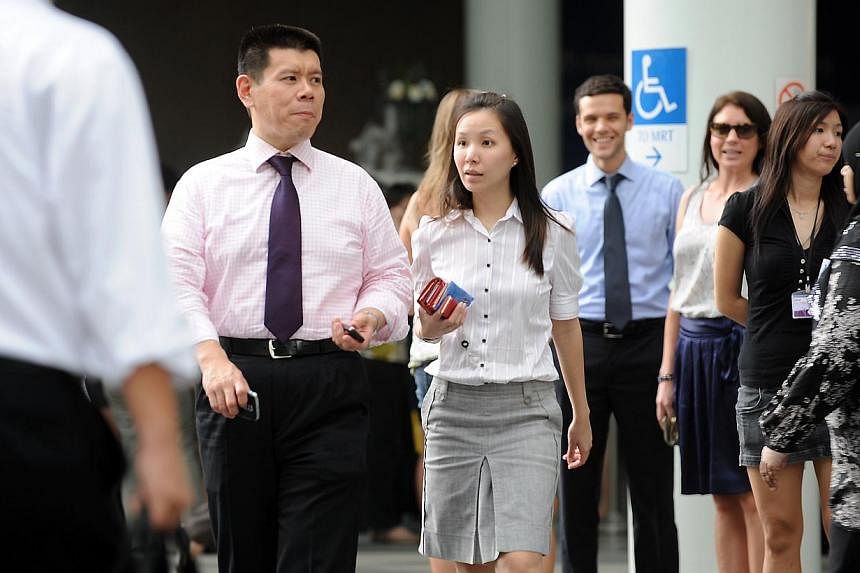SINGAPORE - Singapore is the 10th best country in the world when it comes to women being paid as much as men for doing similar jobs.
However, that was the best rank that Singapore managed to get across all the indicators that the World Economic Forum (WEF) looked at in a study it released on Tuesday.
The Republic, in fact, has not improved on its ranking in recent years, coming in at 59th place overall out of 142 countries in the WEF's Global Gender Gap Report for 2014. It was No. 58 last year out of 136 countries and No. 55 out of 135 in 2012.

The report evaluated countries' gender gap in four main areas: economic participation and opportunity, educational attainment, health and survival, and political empowerment.
In all of the areas assessed, women in Singapore lagged behind men, though the gap was much smaller when it came to education and health.
The WEF said that over the nine years that it has conducted this survey, the world has seen only a small improvement in equality for women in the workplace, the WEF said.
It noted that the gender gap for economic participation and opportunity now stands at 60 per cent worldwide, having been narrowed by just 4 percentage points from 2006. The bigger the percentage, the more equal women and men are.
Based on this trajectory, with all else remaining equal, it will take 81 years for the world to close this gap completely, the WEF said.
Its study only looks at the relative gap between men and women in each country regardless of that nation's level of overall development. Thus a lower-middle income nation like Nicaragua, having closed 79 per cent of its gender gap, ranks No. 6 while the United States is only 20th, with U.S. women achieving only 74.6 per cent of the rate of U.S. men.
A closer look at the scores that Singapore received shows that while the gender gap is very narrow when it comes to education, health and economic participation and opportunity, there is much to be desired when it comes to achieving gender parity in political representation and leadership positions.
Overall, Singapore received a gender equality score of 0.7, meaning it closed only 70 per cent of its gender gap.
Apart from equal pay, women here have almost caught up with men in literacy and enrolment in primary, secondary and tertiary education. They can also expect to outlive men as, on average, they have a longer life expectancy.
But Singapore scores poorly in the area of leadership. With 94 male ministers versus six female, the country is in 128th place in terms of the share of women in ministerial positions.
Without ever having had a female head of state, Singapore got a score of 0 on that count.
It also received a middling score when the WEF looked at the proportion of women in the economy who are legislators, senior officials and managers. Singapore is ranked 62 in this regard, with a score of 0.46.
A recent survey by human resource (HR) consultancy Robert Half, for example, found that 52 per cent of HR managers in Singapore believe women are not getting the same career opportunities as men.
When asked why women's careers were not advancing as quickly as men, the most common reason cited was a lack of work-life balance arrangements to allow women to meet their parental duties.
This was particularly the case in large firms, the study found, where 71 per cent of the HR managers cited a lack of work-life balance as a barrier to female advancement.

